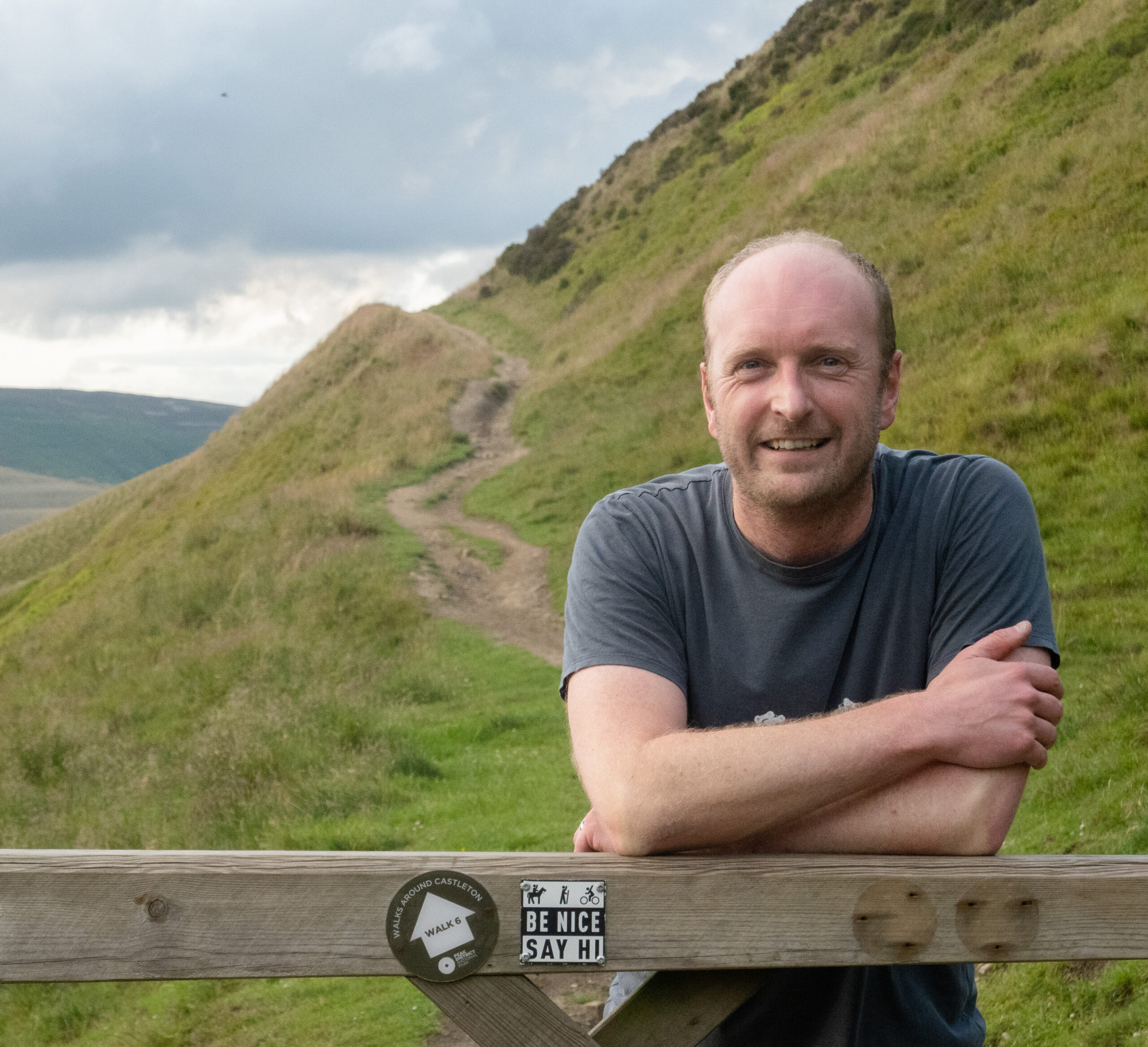Hannah chats with Chris Maloney to find out what keeps him giving up his free time for the benefit of mountain bikers.

Words Hannah Photography Alastair Johnstone / as credited
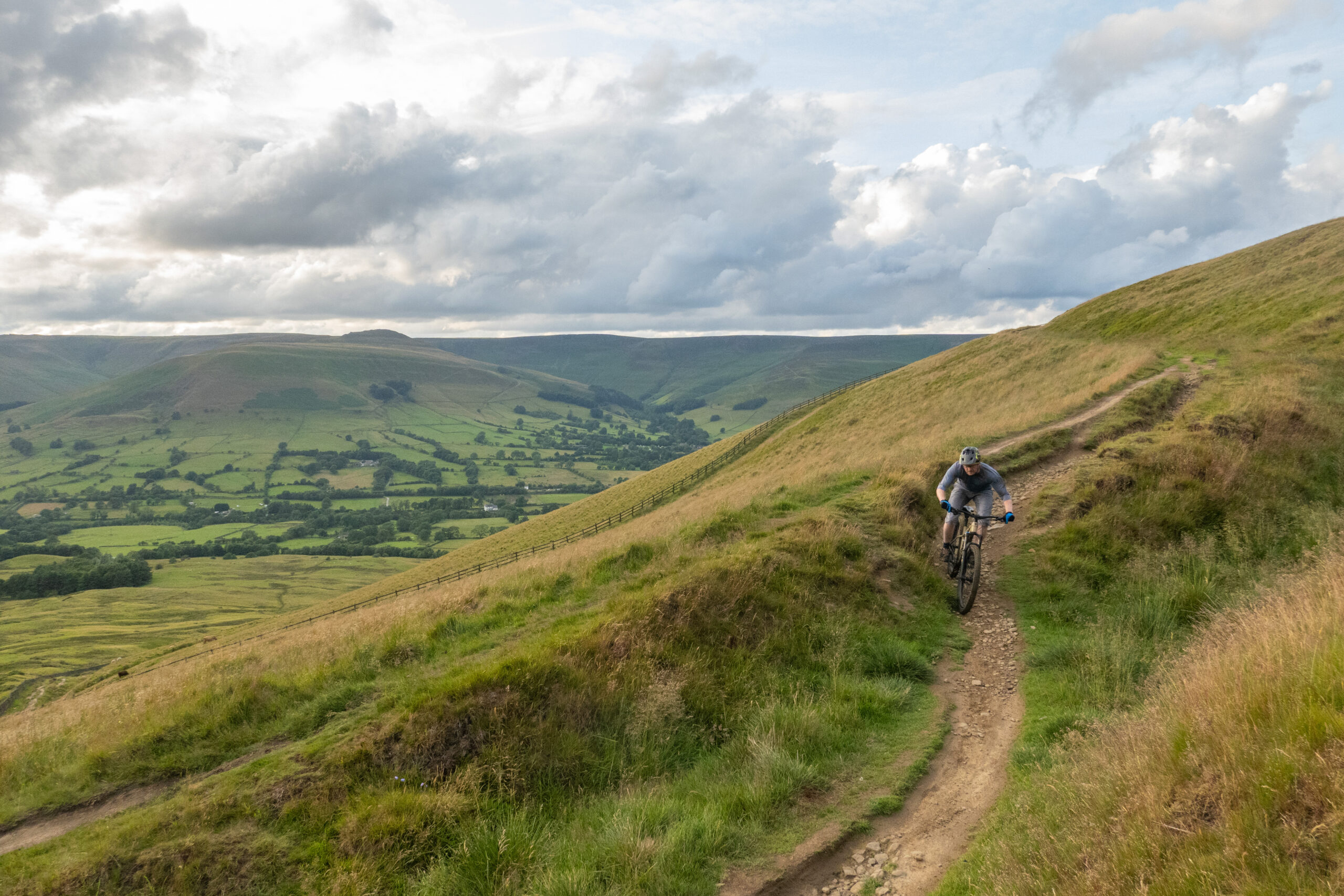
I have a standing joke with my American partner: he asks where something is, and I tell him it’s in the Peak District, or on the edge of the Peak District. He rolls his eyes and complains that’s what I always say. The thing is, I’m not actually making it up – many of the towns, trails and sights that he asks about really are in the Peak District. There’s a lot to visit there – and a lot of visitors. With so many honeypots to draw in people with so many different interests, there’s a huge amount of potential for conflict between different user groups. The area has a long association with the fight for land access rights since the Kinder Trespass paved the way for today’s National Parks. It’s perhaps fitting then that one of mountain biking’s most vocal advocates, Chris Maloney, aka The Keeper of The Peak, has the Peak District as his home. But his sights are set far beyond the boundaries of the UK’s most accessible National Park.
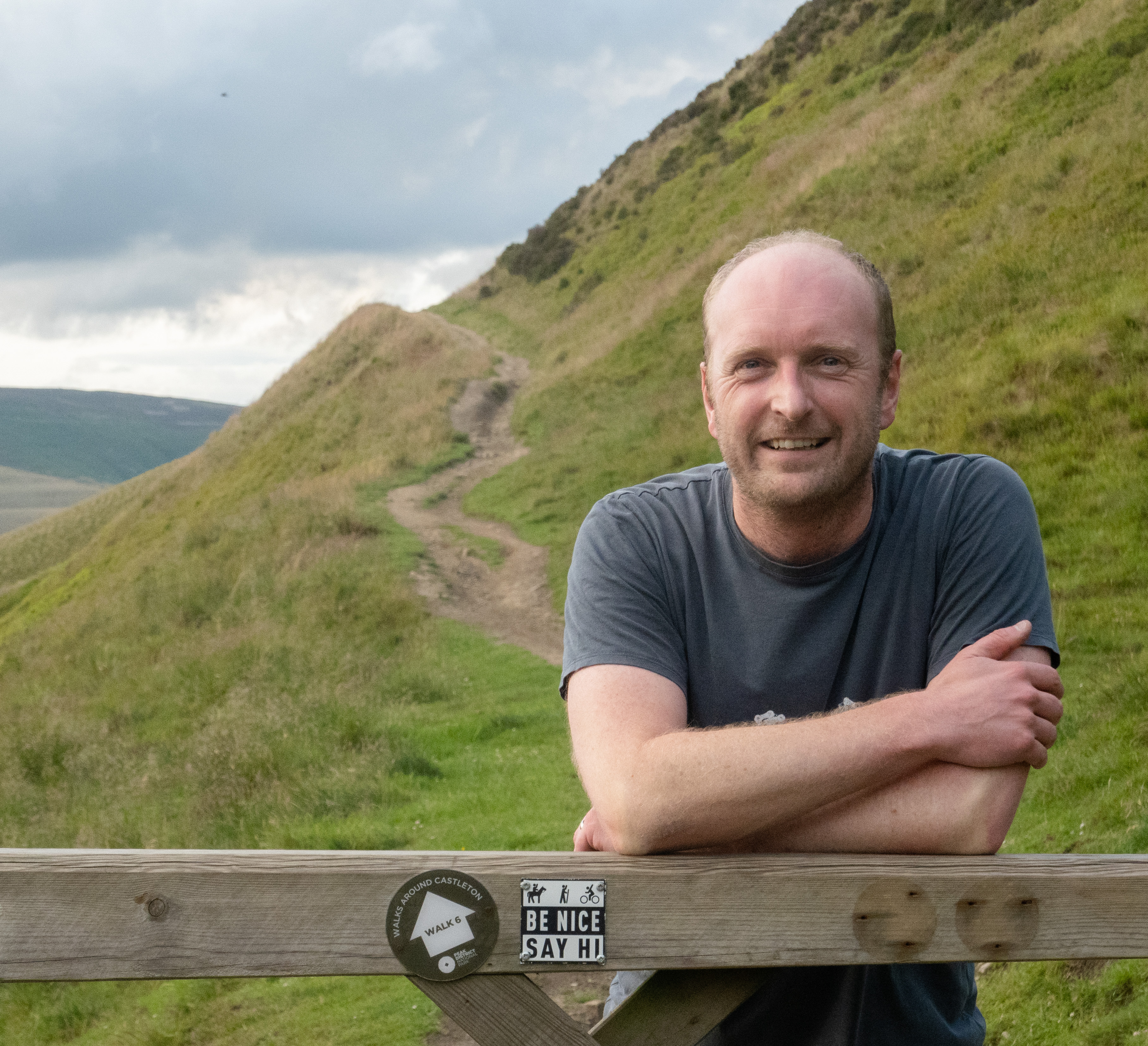
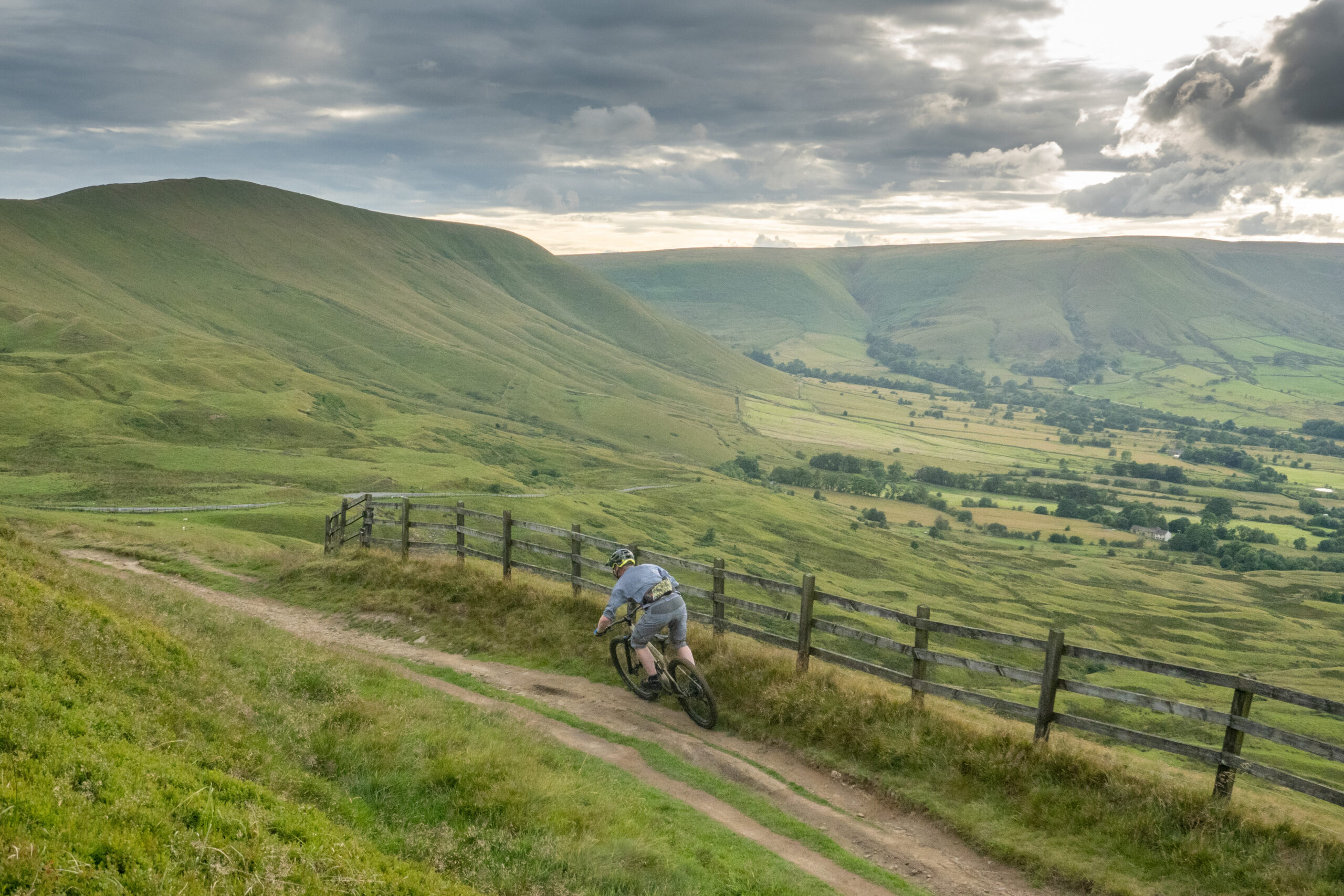
He grew up in Rotherham, where some of his earliest bike memories are of heading into the local patches of woodlands on his Raleigh Burner with his older brother. They’d build jumps, see what was around that corner, or over the next hill, and generally spend their days exploring until it was time to go home for tea. While the urge to see what’s over the next hill prompted him to pedal further and go exploring, he only went as far as Sheffield for university. It was one of only three universities offering an accredited journalism course, and he was keen to keep both the girlfriend and job that were in Rotherham. In time, he discovered that journalism offered a less than ideal mix of really hard work for very little pay, and he switched to working in corporate communications. This allowed him “a little bit more money which led me to buy bikes, basically” and has also given him a skill set that’s proven very useful in the relationship-building world of bike advocacy. I wondered what drove him to get involved.
“It’s certainly a need to right wrongs… I always root for the underdog; it just so happens that mountain bikers in the outdoors world are typically the underdog… I just love riding my bike, I like going out to places, I like riding more places and there aren’t many places we can ride. And you look at somewhere and go ‘Well why can I ride on this path, but I can’t ride on that path’, when to all intents and purposes they’re exactly the same. There’s no difference on this path than there is on that path, and then you look at the nonsense of legislation and the stuff with enclosure, the stuff in the ’50s and ’60s regarding the designation of footpaths and bridleways and all that stuff and it just doesn’t make any sense. We’re forcing conflict upon ourselves which doesn’t need to exist, through these just completely spurious boundaries that are just on paper. And when they’re on paper they’re only on paper because it’s a slightly longer dotted green line than the other one. That winds me up. It winds me up that you can be going out, and having the most pleasant of daydreamy rides… and you can be having a lovely ride with your mates.. and then there can be one negative interaction with somebody. It just ruins your day or your ride that you’ve been looking forward to for weeks. It is a completely false conflict created unnecessarily.
So, it comes from that. It comes from all those years of riding, wanting to ride in more places, and people going ‘Oh no, you can’t ride there’, and just going ‘Well, why?’. So that’s where the journalism comes in because for me journalism was just asking ‘why’ lots of times… You ask why enough times and they go ‘I dunno’, so then you go ‘Let’s change it then’.”
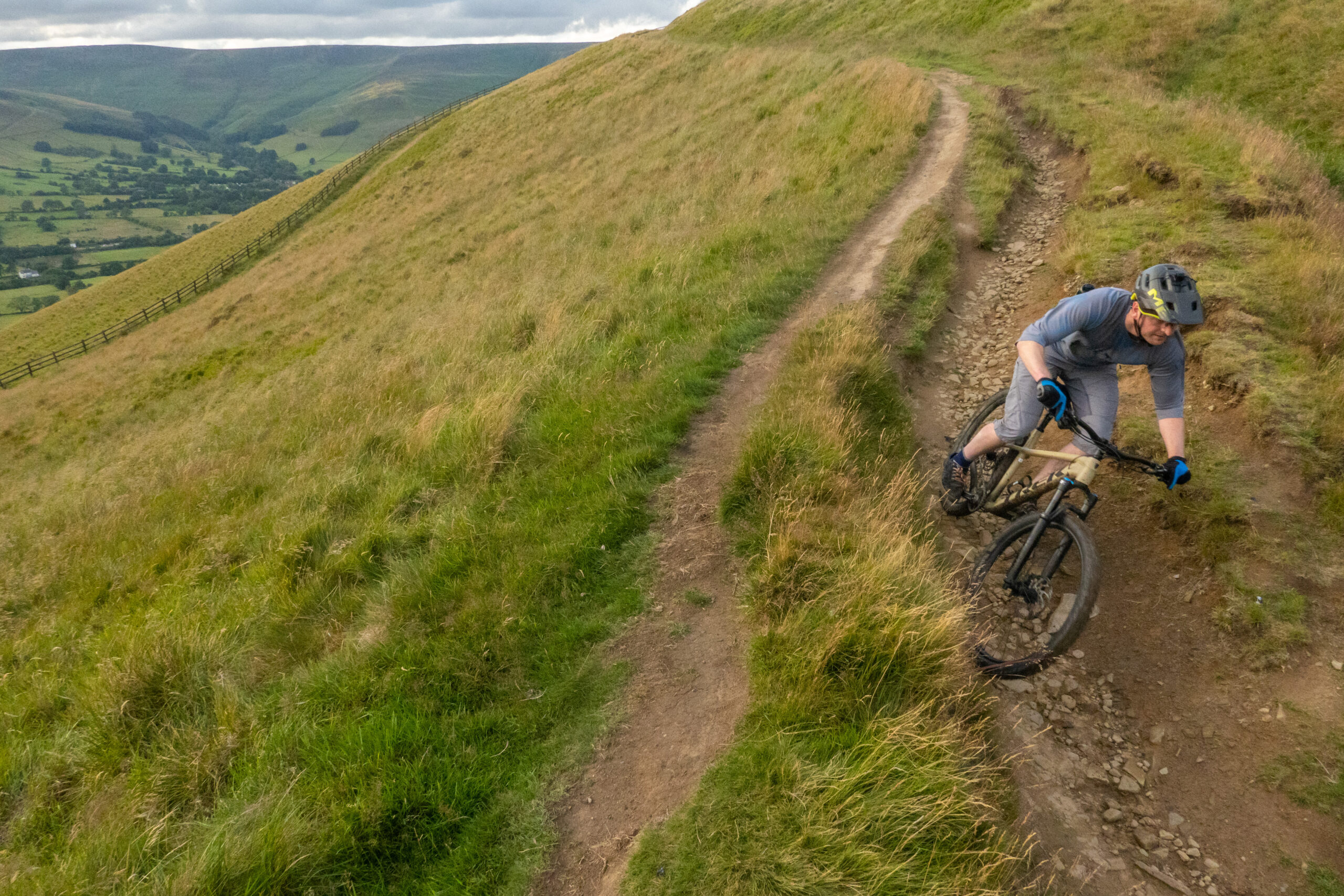
It’s clear that Chris gets animated about the bigger picture stuff but a lot of the advocacy work that he has done in the Peak District has been around the ‘how’ of trail maintenance and addressing some spurious decisions about what should be used to maintain trails, rather than necessarily the more fundamental or broad access questions. I wonder if that’s because it’s the fight that is there that can be picked and done something about with tangible results?
“No, it’s not one or the other, it’s an ‘and’. We have to be pushing for access AND we have to prevent the bad actions being taken in resurfacing, AND we have to ensure that we deal with ensuring positive representation AND we have to show that we are decent people – we’re not just oiks digging in the woods and skidding… it’s not one or the other, it all has to happen.
“In taking on those battles, which time and time again have been with Derbyshire County Council, it comes back to that ‘why’. ‘Why are you doing it like that? Ah well we’re doing like that because it needs to be this wide. Does it? Who said it needs to be like that, why does it need to be like that, why does it need to be that wide? So you can get two horses past at the same time.’Why, when do you ever see that, it’s not like the M1 of horses going up and down, it’s not a gallop on the York Racecourse. Why don’t we have to have that for cars, then? Why can we have single-track roads with passing places? Why are you using something which is crushed rubble from a destroyed brownfield site in an SSSI?’ And then it’s just more fundamental caring for the places I actually go; it has nothing to do with the bike, it’s just being somebody who cares about the environment and stuff. I just care about these places and I care about the damage I cause when I’m riding my bike. I care about the damage other people cause when they’re making bloody stupid decisions about what they do with it. When they go ‘We’re going to dump a load of type two aggregate on this 15° slope.’… Well, the money you’re spending on doing that, wasting your money on that and then having to clear up because it’s all flowed into the gutters at the bottom of the hill or it’s silted up a stream, [that money] could be properly used for improving things for everyone, mountain bikers included.
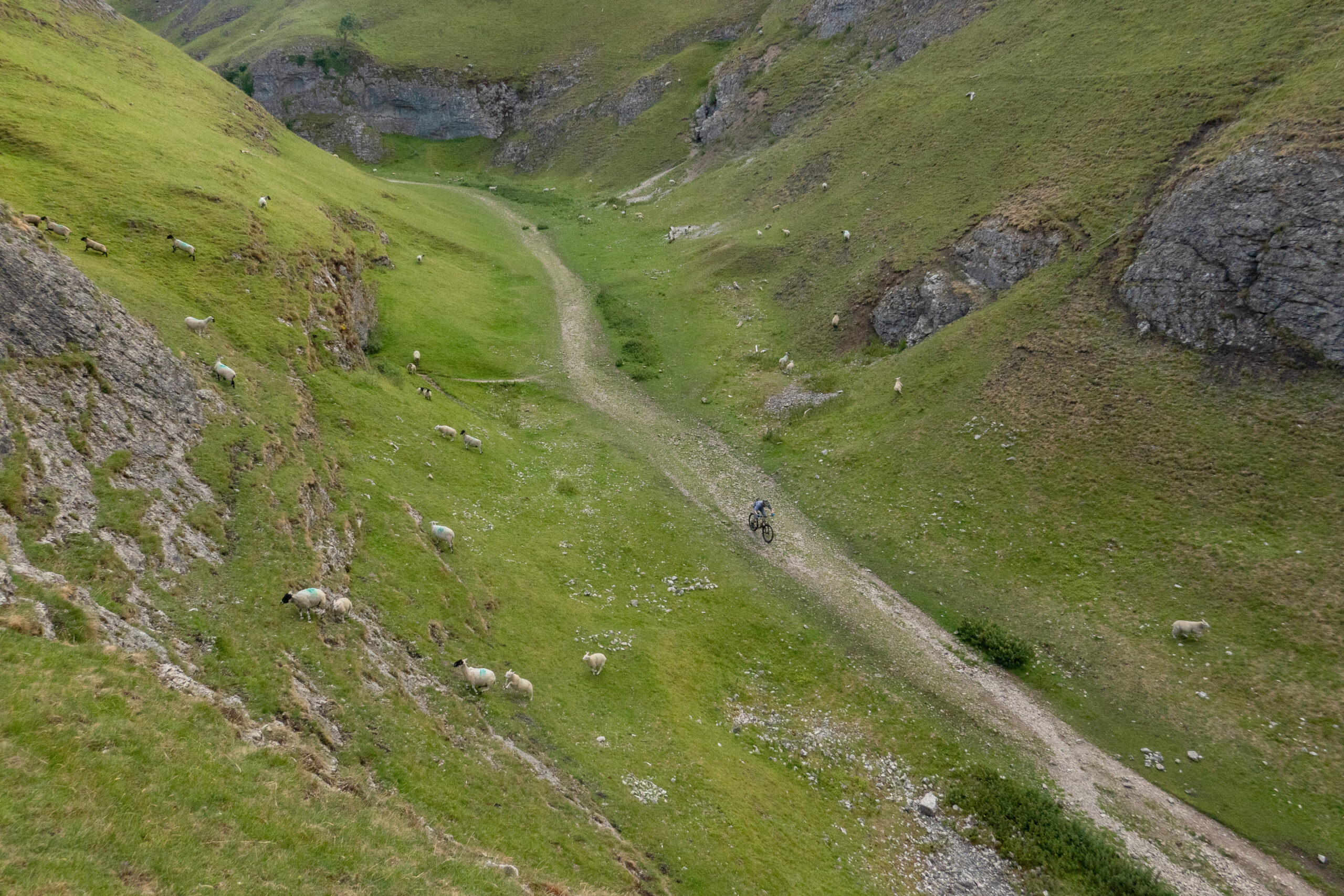
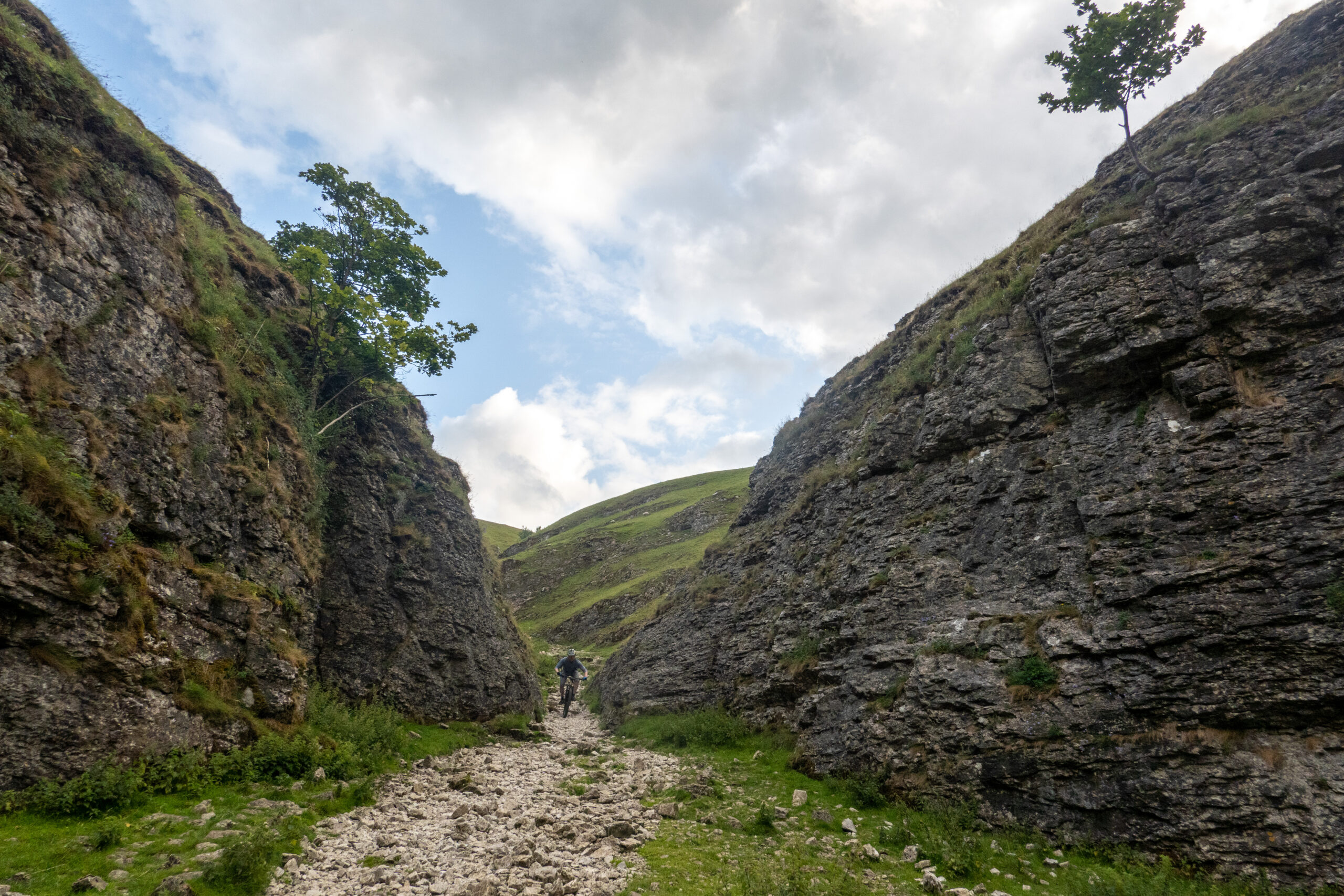
“And then I just get annoyed because I just turn into Disgusted of Tunbridge Wells going ‘taxpayers’ money’ and all these kind of things. The biking world pays taxes into the Peak District economy, and then just to see it pissed up the wall like it is done with this wasted money…. like the Hollowford Road works cost twenty grand! Twenty grand to put gravel on that stretch, and you’re going well ‘Why is that?’. It’s a sunken packhorse old coffin route, a really historical route, and you’ve spent twenty grand to turn it into a motorway out of Castleton on the justification that horse riders want to get access onto the hill. Well, yeah, they do, but you’re not doing the rest of it. If you do go and do the rest of it you’re gonna be then going down to Greenlands and from Hollins Cross and that is just a terrifying, terrifying prospect. So why do we seem to have taken a lot of that stuff on? It’s because we have to. Nobody else will. And how far does it go if we allow it? Pin Dale was a really important case in point. Had we not kicked up a massive fuss about Pin Dale when the Type 2 aggregate crushed stuff was on there, which had plastics in it and we had the headline that was ‘Hairbrush Found in Surfacing’. Had we not really kicked up a fuss about Pin Dale they would’ve done Cave Dale the week after. It was that close… and had they done Cave Dale with the same kind of stuff, you’ve then got the water pouring down Cave Dale… and that water pours down and then it disappears… it goes down and into the caverns, Speedwell Cavern and all those. All of that would have been contaminated had we the mountain bikers not kicked off about Pin Dale.
“You look at some of the other paths in the area, and they talk about putting aggregate and gravel on things and you go ‘Well, yeah, that makes sense’. Some of the stuff they’ve done… makes perfect sense and are an absolutely appropriate use for that surfacing. All we’re doing is saying look we have experts, we are a maturing community that really deeply cares about these places, come and talk to us. We’re not just here to kick off, we want to help you do this right for much longer-term effectiveness.”
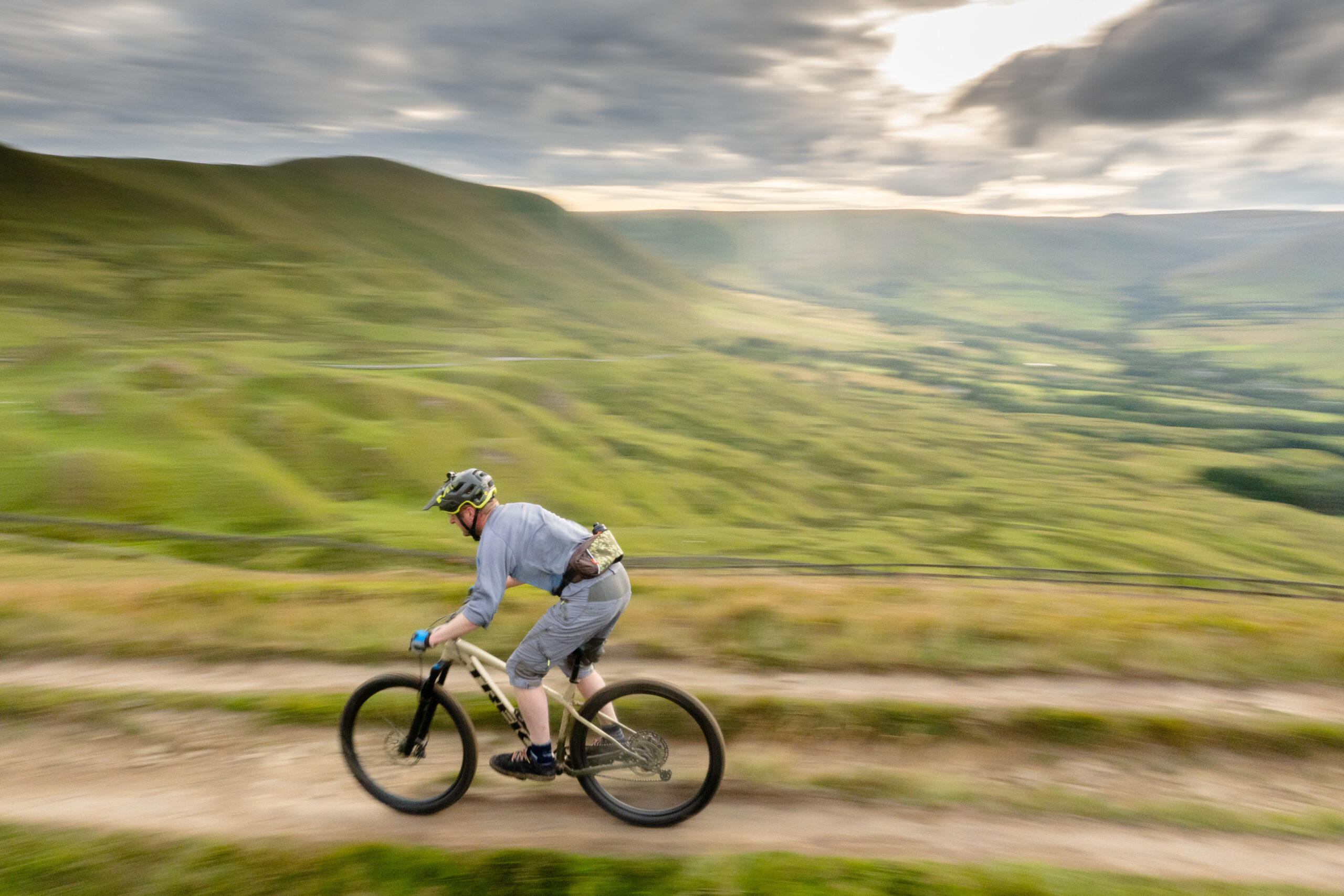
It’s a whole pile of steps forward, maturing and growing up from when Chris started the Keeper of The Peak Twitter account which kicked it all off, and has its roots in the Singletrack Forum.
“Keeper of The Peak was kind of the start of it really, yeah. I was on some forum, some chat forum I frequent from time to time… and I was riding in the Peak District loads.. and I was on the forum and somebody said ‘What’s it like?’ and they were on about riding on Cut Gate. I can’t remember what time of year it was, but I know it had been wet. And I said ‘Oh you probably want to avoid Cut Gate at the moment because you’ll not have an enjoyable ride and it’s really, really boggy up there’, and the response from that person was ‘Who died and made you Keeper of The Peak?’. So I thought, do you know what, I could get into late-night internet battle, but I thought no, I’ll try and turn it into something positive. So this new social media thing called Twitter was just emerging, so I registered Keeper of the Peak as a name on there and thought it was somewhere that people could go to look at conditions. How many times did questions about conditions updates and the Peak come up? All the time – week in, week out – every single week on the Singletrack Forum the question would come up. I thought if we could get it as one central location at all times and if it’s crowdsourced so people put the data in you’re gonna have an audience… and that’s how it started really. I showed it to my wife and she’s like ‘Oh that’s nice dear’ and I think when I had ten followers I was chuffed. I thought that’s a nice little group of people who are caring about the Peak District. And then it got to 50, and 100, 1,000, and then 3,000 or whatever it is now, 10 or 11 years later.”
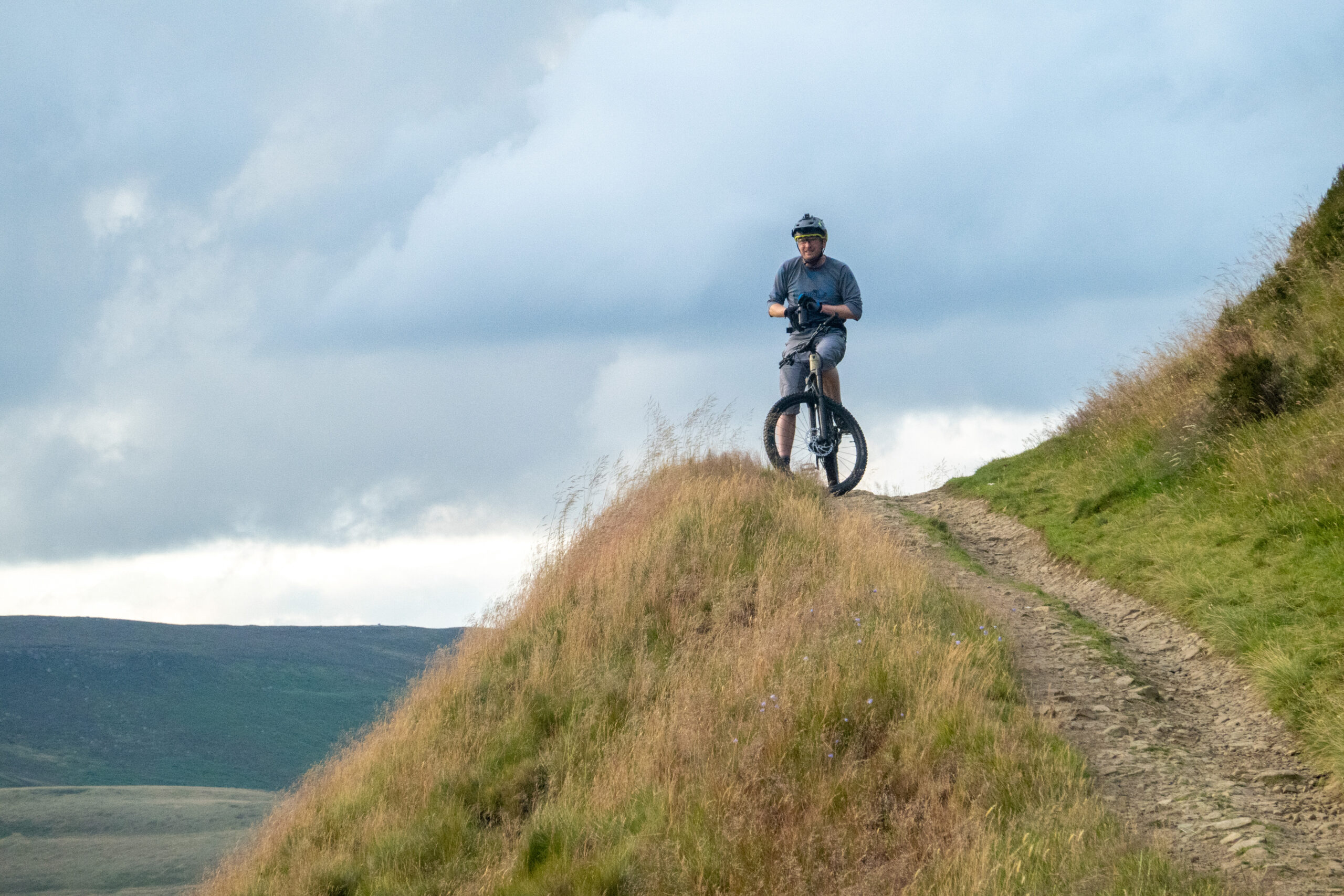
Before we get on to the fact that Chris is now the Chair of Peak District MTB, and where he wants to take that, I wonder how he’s seen things change in the time that he’s been doing all this advocacy work.
“Things have changed for the better. Things have definitely changed for the better. But then you look at the core things of what we’re trying to achieve and you think has anything changed at all? Things have changed for the better in us having more of a voice. We are more seen as an influential and important voice in the outdoors. We’ve established good relationships with some of the landowners, we’ve established a great presence in the planning authorities, the local British National Park Authority for example. We’ve certainly made our presence felt with Derbyshire County Council [laughs wryly]. They know us very well. So those relationships have been established and people ask us questions and invite us to things and we won’t be just pooh-poohed and ignored. I think a lot of that is down to us sabre rattling and really getting ourselves out there.”
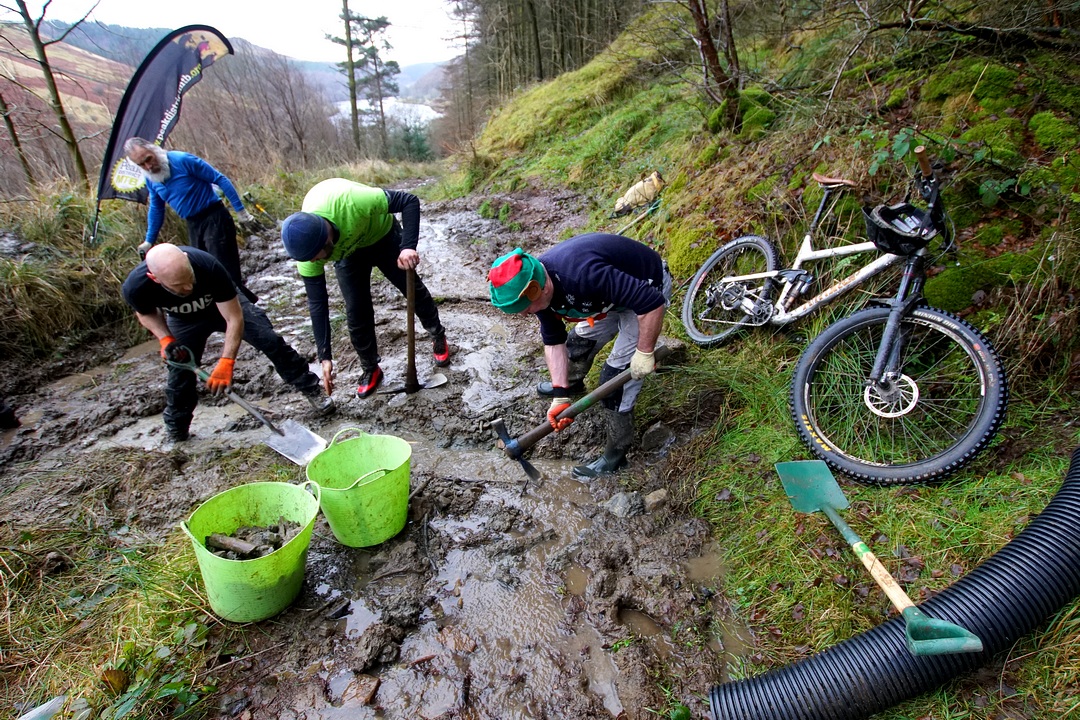
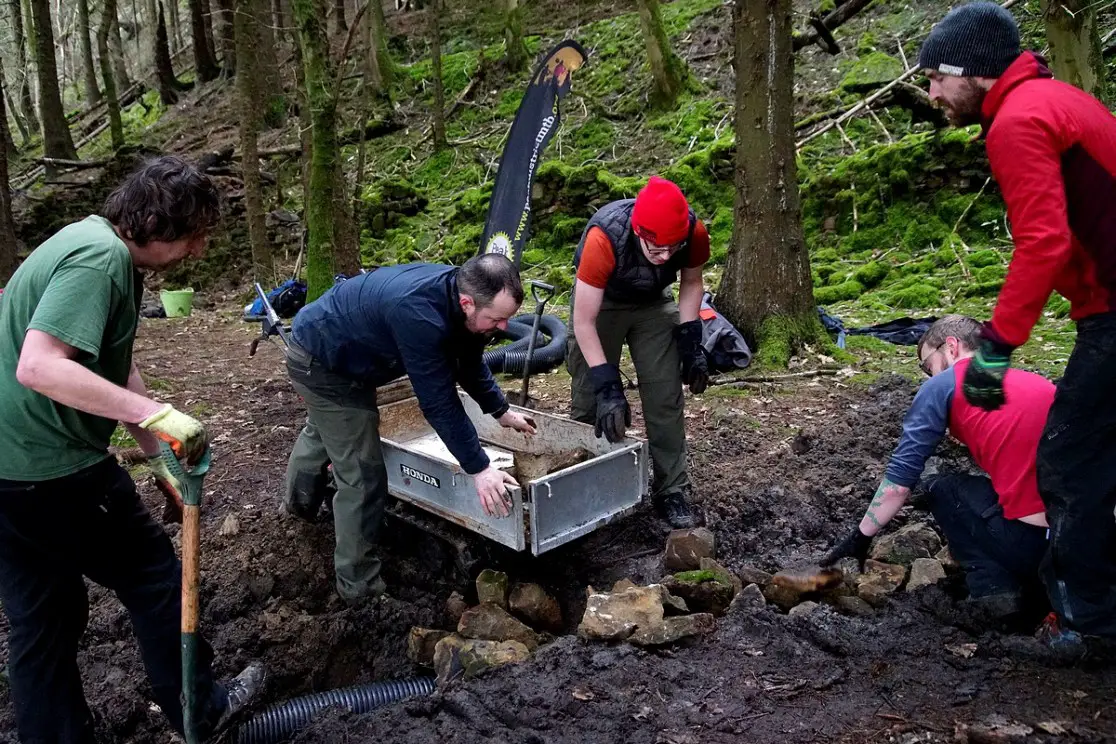
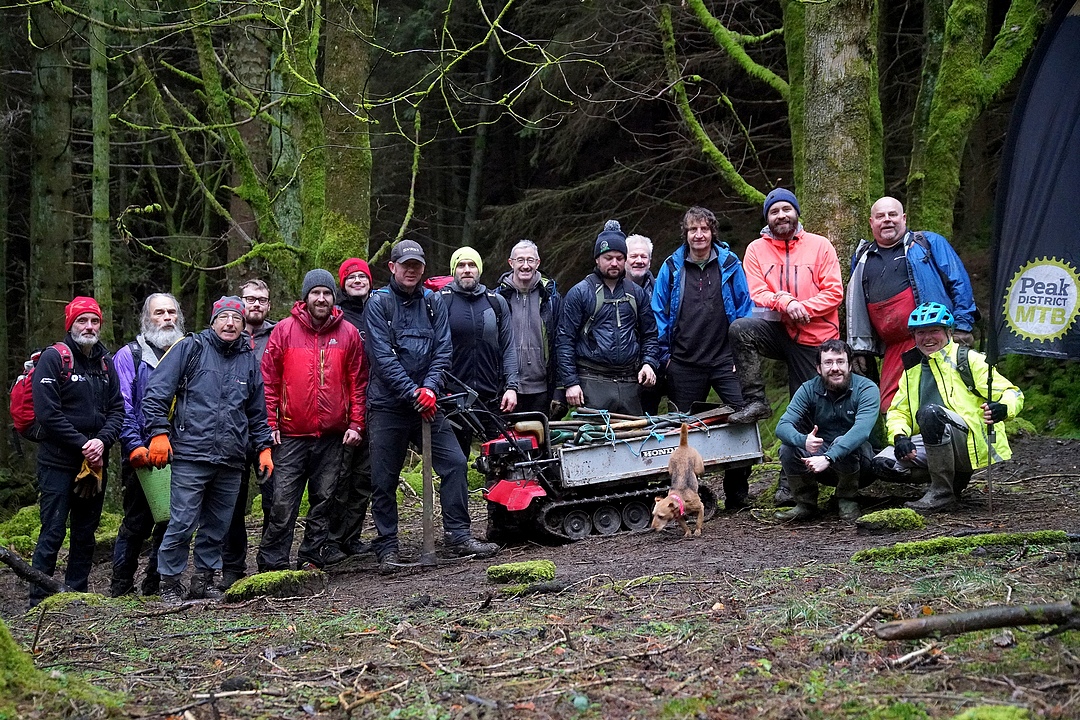
Has it got to the stage where they come to you because they know it’s better to come to you now, because otherwise you’ll find out about it later?
“Yeah, we do get more proactive engagement from a number of these groups. We were invited, for example, to join the Kinder and High Peak Advisory Committee – these are the exciting worlds we move around in, which sounds thrilling – but we were invited to join that. We were seen as the local representation in the Peak District for mountain bikers so we were invited to join. And they’re advising on access rights to the National Trust. We’ve earned that by doing what we’ve done. And so things like that have really changed for the better. But we are hamstrung by the fact that we’re volunteers and a lot of these things happen in working hours and it’s very difficult for us to find the time to go off and do these things.”
Chris might love his job in corporate communications, but I can’t help but feel he might have missed his calling in the diplomatic service, or maybe the customer services department of a courier company. Despite being incredibly wound up by the ridiculous state of the world on a whole range of fronts, he comes across as endlessly patient. Which is probably just as well, since his advocacy work depends on building relationships across an array of (typically underfunded and overstretched) bodies with an interest in the Peak District.
“Have things changed on the ground? Yeah, but they seem to have stalled again because, once again, we are entirely reliant on individuals in organisations wanting to work with us. We had an absolute dead end with Severn Trent Water a few years ago that we then managed to break through to the people there and then had this, just such a fruitful relationship, with it when it came to access and the kind of things we could do with it. We would go into meetings with them where – hopefully, they felt the same – we’d be buzzing with excitement about what are they gonna talk to us about this time. What can we do? Where can we go with these things? And then there was a change of personnel again and we’re back to square one.”
Chris is a man with a plan. He’s frustrated, but he’s channelling this into some big ideas, which come complete with spider diagrams, and proposal documents.
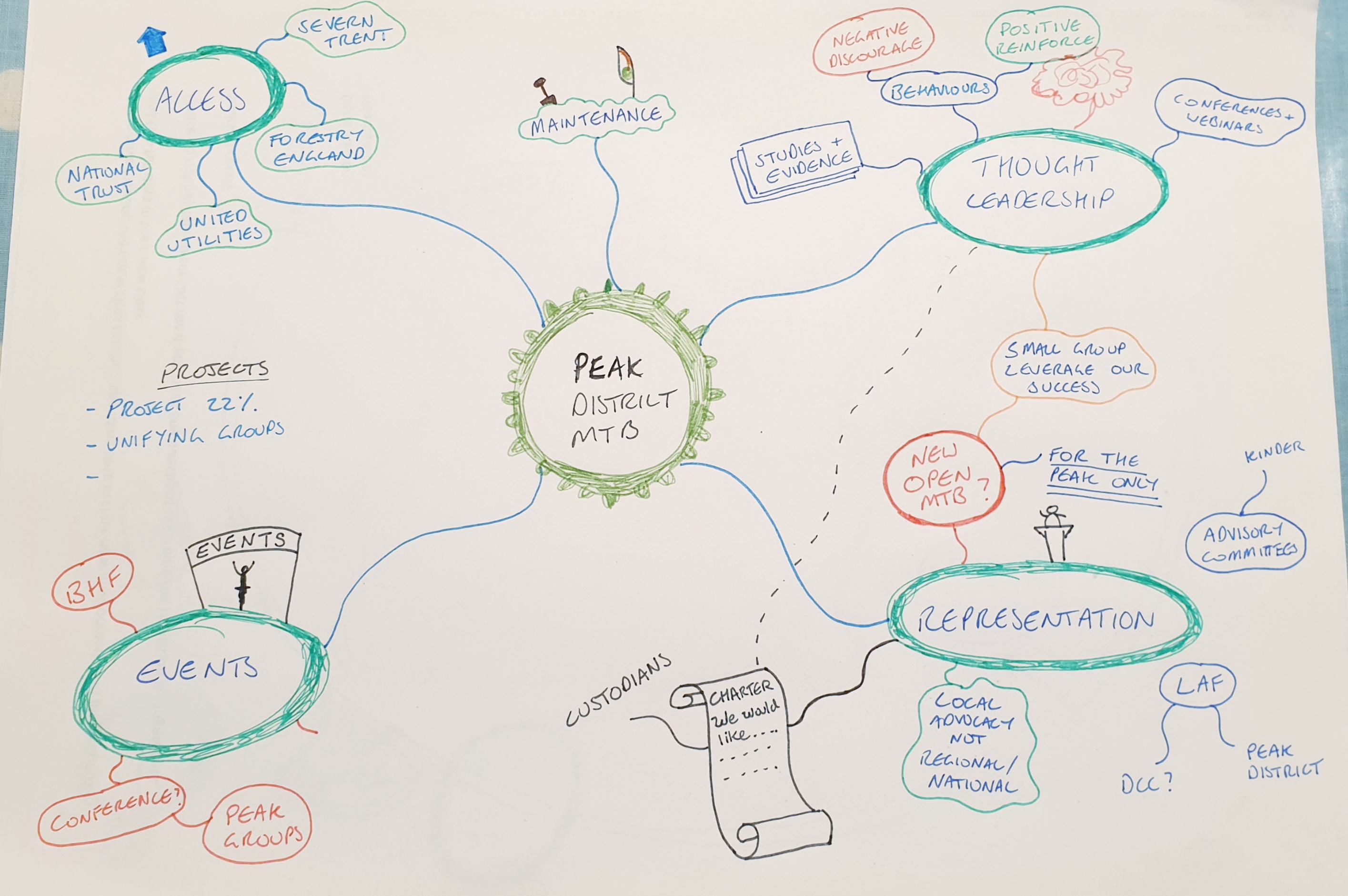
“I look at my little spider diagram here, it’s very pretty! And you look at what the ambition is for Peak District MTB and what we want to do. There are four big blobs here. One’s ‘Access’ with Severn Trent Water, Forestry England, United Utilities, and National Trust around there… I’ve just noticed I haven’t put National Government on there, but it needs to be on there! We’ve got ‘Representation’, to show people outside the mountain biking community what mountain bikers are actually about. That we’re a decent bunch of people who’ve got some smarts and can actually play a positive contribution here, we can actually do some good stuff. On ‘Thought Leadership’ we’ve got academics on our committee now, so we’re putting in the work and doing the studies… And then.. this is just a pipe dream, to start running events. We support the British Heart Foundation ride, could we run a Peak District MTB event ourselves? It won’t surprise you to learn I’ve got an entire Weekender worked out: schedule, location, everything… But [there’s no] bloody time to do it… So it still feels there is so much potential for what we could do. The size of Peak District MTB now, and the size of the mountain biking community that is in our sphere – or we are in their sphere. We’ve got to play that role. We’re influential. I don’t want to say we’re influencers because that’s such an arsehole thing to say, but we’ve put something out there and there’s been enough noise about what we do and how we do things that it rattles through in places. We’re in pretty much constant dialogue with Cycling UK, for example, about what’s going on, talking about what they’re trying to achieve and what we want to achieve. It feels like there is a load of potential there and I get massively frustrated by not being able to deliver on that.”
I wonder whether national economics plays any part in the ability of people or businesses to contribute energy, time or money towards the effort?
“I think in the last 15 years or so it’s just gone like that [gestures downwards]. It seems to be a race to the bottom. ‘We can cut close the bone here, how much of the bone can we take? How far through the bone to the marrow can we take before this entire thing collapses?’ Ironically, perhaps, it may well be that as the Severn Trent Waters, the United Utilities, the National Trusts constantly find pressures on their finances, they look to groups like ours to help plug the gaps. I know that happens with the Peak District National Park… we can see the demand, the stresses on their capacity, and so it’s something we can offer. ‘We can help you with that, we can give you some of our volunteers to come and build a drystone wall.’ While financial pressures are exacted upon these organisations, perhaps there is a positive role groups like ours can play in helping plug that.”
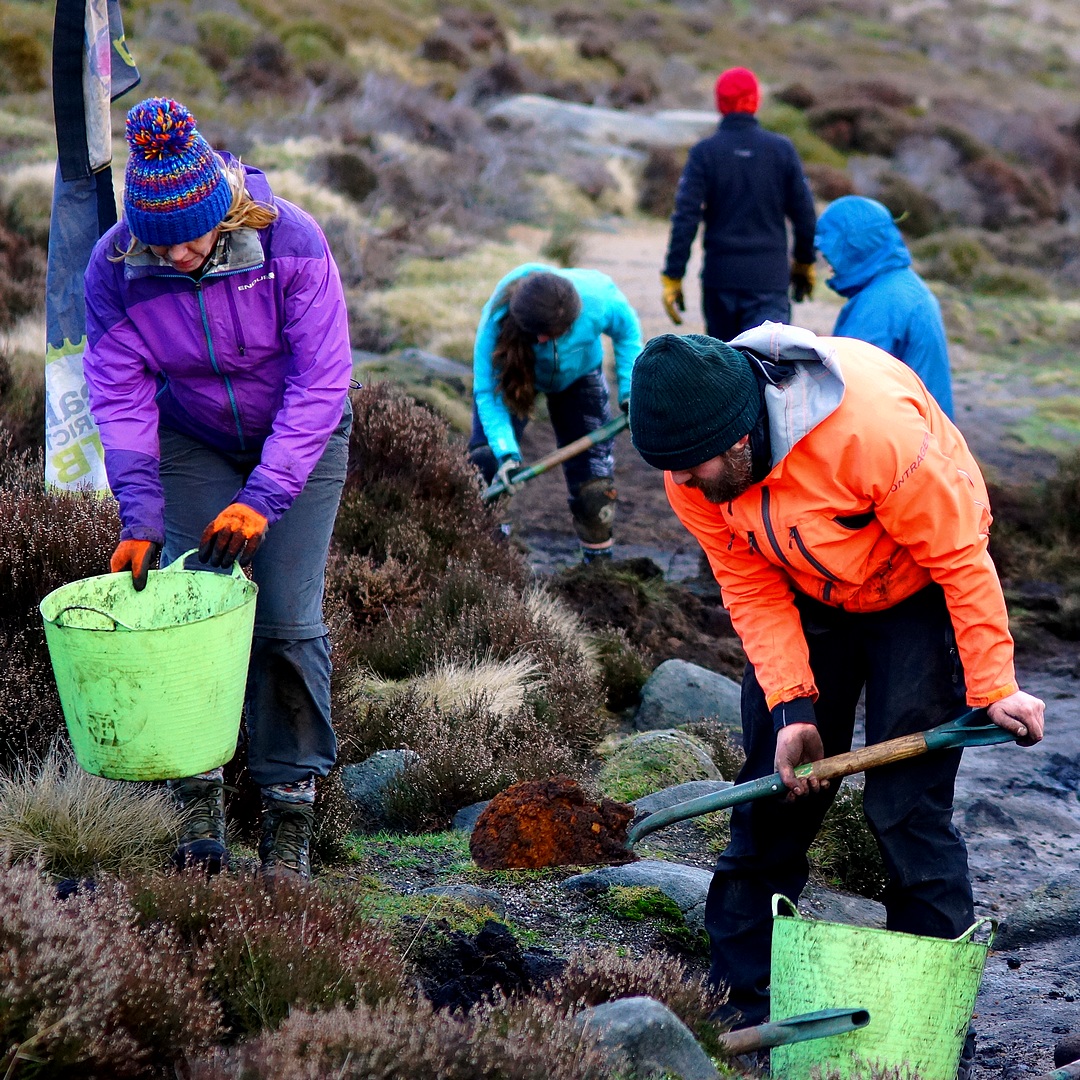
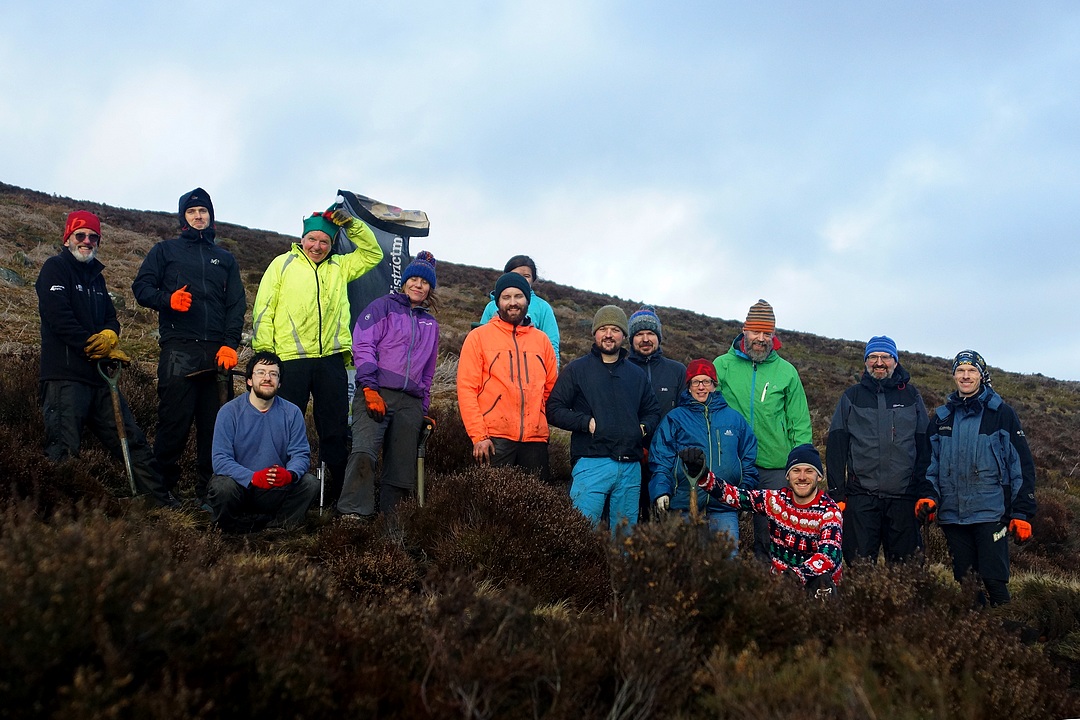
That sounds rather sad in that there is opportunity through deprivation rather than opportunity through going ‘Hey, we’ve got a bunch of money, let’s do some good stuff!’
“It is, it’s really sad. There are studies abound that show the long-term benefits of the outdoors for people, in bringing kids in from an education point of view, from my side of things which is pure recreation, going out and mucking around. All the mental health things, the evidence abounds. It’s in every single green strategy; it’s in every single active travel strategy. All those kinds of things: go outside and you will feel better. The investment should be coming to allow that to happen. It should be coming from transport infrastructure, helping people to get out there if they can’t; coming from education, making people understand how it will help them. It should be coming from – selfishly – access… It is painfully short-sighted when that is constantly overlooked. There are little rays of hope coming in some of the sounds you’re hearing from, shall we say ‘potential government’, in the next couple of years or so. But how much of that will actually stick when we have a change of legislature…
“Look at what Jim McMahon [Labour Shadow Environment Secretary] is doing, and [Kier] Starmer’s echoing it thankfully, talking about access. Look at the Glover report which you read and go ‘Yup, yup, yup, this all makes sense, yes I can see how that would work’… even down to the subsidies to farmers… it just makes complete black and white sense to me. Why isn’t anybody picking this up and going ‘This is brilliant, let’s do it’.”
This rather illustrates the difficulty faced by many voluntary groups – including trail associations, access campaigners, and all those who give up their time to try to make the world a better place for mountain bikers. There’s only so much time and energy in a day, and volunteers can only do so much. But Chris has a plan…
“You see lots of very well-meaning groups trying to raise money for a pump track or trail or to do something. What we as Peak District MTB have really found success with is where we’ve been able to come across as professional. We’re lucky that we’ve got people who can write, who can design so they can give us that look and feel… but really to be a professional, properly set up group you need things like a bank account and a bit of a constitution so you’re doing what you promise, you’re not just getting money in that’s ‘resting in my account, Officer’… We have a lot of brilliant, up and down the country, brilliant initiatives to raise money locally for things, but there is no national unifying pot of money. There’s no unifying purpose for raising money and, this is where the [idea for a] Trail Pot came from. We mountain bikers, unless it’s shiny or anodised purple, don’t like putting our hands in our pockets. So we need to do something which can put some weight behind what we’re trying to achieve as a mountain bike community without it being much of a burden on anybody involved.
“The idea was we could set something up which could not only provide a regular funding stream to local projects, with a bit of guidance and structure around them, but could also feed into a national pot which could be used to take on the bigger initiatives, like supporting Trails for Wales or supporting a Trails for England. Those kinds of things. Can we throw a ton of weight behind a national project, can we then also invest money locally? And the logic behind it is really simple.
“Could we target 400 bike shops around the UK to take part in the Trail Pot? We’ve all been in restaurants where we can add a gratuity… When does your bill in the shop ever come up to a round number? Never. So… round it up, round up your £6.67 by 33p and throw that into the pot. Managed by the bike shops, they can set it up on the electronic system, it’s like a penny jar, and then they just donate that into the pot. If we were to get all those shops you end up with the fund which starts running into… tens of thousands of pounds. And that’s not to be sniffed at. So if you got knocking on the door of £100,000 in a pot each year, and we have someone going ‘We want to put a pump track in…’ ‘OK, great how about we match fund…towards it’. Or you have a trail association trying to get set up but can’t afford things like a website or British Cycling insurance registration… it would cost an individual £200, £300 to create an official little group that can then grow and grow. Give them a website, get them some artwork and some flags for when they go out digging, get them their affiliation so they’re insured and you start then planting a seed where there’s something you can develop from. Lighting lots of little fires around the country, using tiny little pots of investment and then you get a blaze after a while. That’s where I started thinking with it – and I know that it can be done.
“Where are we at with it? It’s going to be registered as a charity so you can properly govern it along those lines. We have trustees on the charity now, we’ve got a regional development expert, we’ve got an outdoor education expert, we’ve got a lawyer as trustees. Very useful! We’ve written the constitution…as soon as we get that over the line we’ll be up and running… If we can do it right, I think it’ll just go big very quickly. And then I’ll be really scared because I’ll be like ‘Now I’ve got something else to do!’”
So, where does the industry sit in this? What we’ve discussed so far is about funding coming from the users. Chris explains that’s just one part of the Trail Pot.
“The industry has a responsibility. The industry makes money out of those individuals, these places. If we didn’t have places to ride… there’d be no money going into the industry. This is where corporate social responsibility comes in. So, what can they do to support this? Let’s just pick two massive parts of the industry, whether people like them or not. You’ve got Evans Cycles who sell loads, and then you’ve got Halfords, and they sell millions and millions of pounds worth of bikes. They wouldn’t need to invest a lot from a corporate social responsibility budget to have a big impact on the Trail Pot. And then if you go to the manufacturers, who all do their own thing to varying different scales you’re going to have a pot of money for reinvestment – but it comes back to doing things professionally… I want to be a registered charity before I go and ask a company for £20,000.”
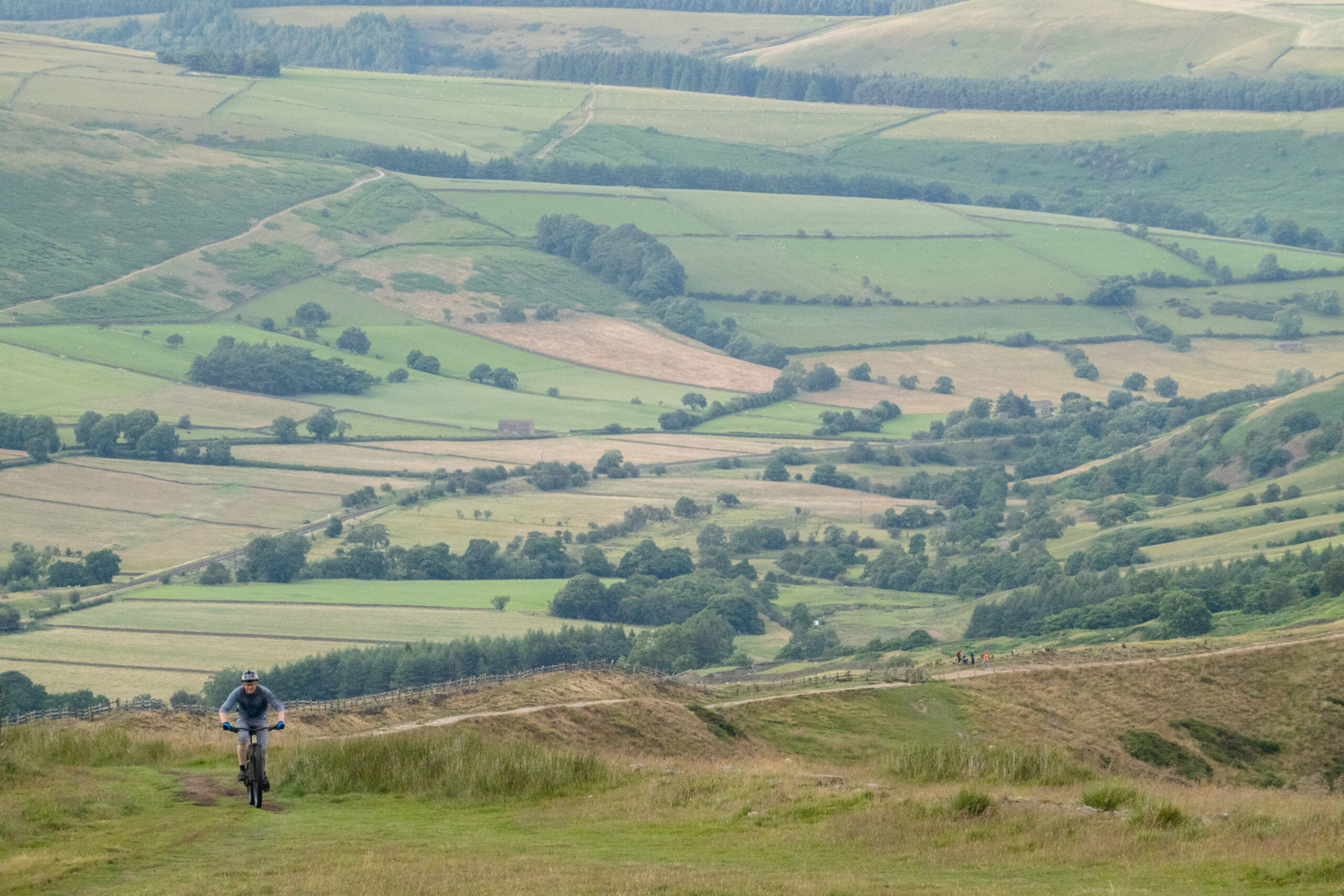
It’s a long way from playing on a Raleigh Burner in the woods!
“Yeah! If I’d applied myself to something else, where could I be now? But you’ve got to do something, haven’t you? You’ve got to leave some kind of legacy or something like that… I could leave an entire community being seen as more positive than they were before. That’s not a bad thing, I don’t think.”
With so many ideas, it’s no wonder Chris says he’s a bit tired. But I for one am grateful that he’s expended the energy that he has on mountain bike advocacy. A few extra pence on a pound to help bring more advocates into the community seems like a small price to pay. I hope Chris gets some downtime to go and explore some of the new places and trails his efforts will hopefully open up.
Chris is working on those final touches to making the Trail Pot official. Head to thetrailpot.com to stay up to date.
